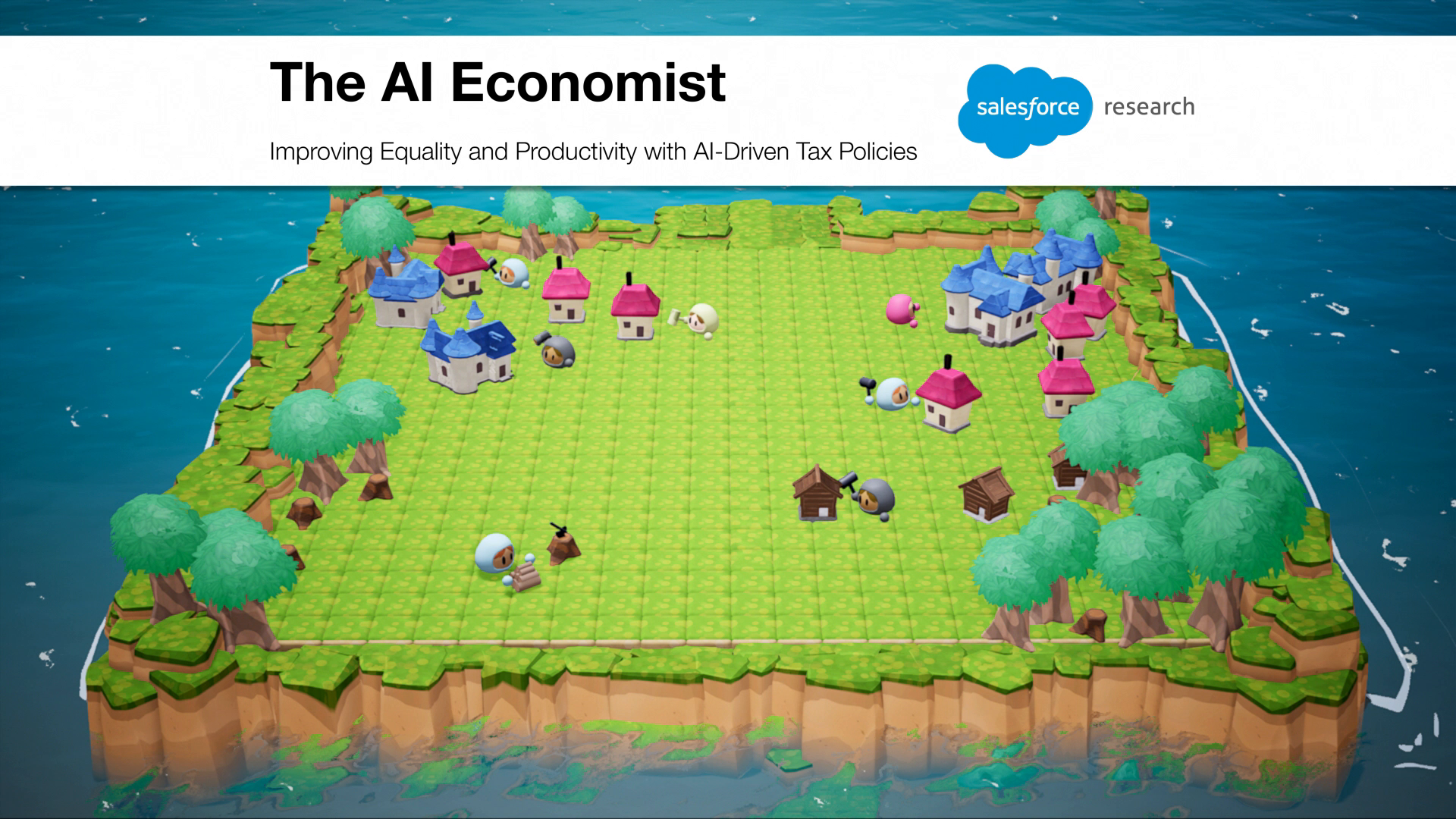Salesforce researchers say AI can help find optimal tax rates
Add Axios as your preferred source to
see more of our stories on Google.

Courtesy Salesforce
A team of researchers at Salesforce has been working to tap artificial intelligence to identify which tax rates would best achieve a balance of productivity and economic equality.
Why it matters: It's hard to do real-world experiments actually testing out changes in tax policy. Assuming the models work and can add complexity over time, AI could allow economists and regulators to test out lots of approaches to find one that best matches their desired outcome.
How it works:
- Salesforce is using a technique known as reinforcement learning, the same basic approach that Google and others have used to teach computers to be masters at games like Chess and Go.
- Salesforce's "AI Economist" uses a collection of virtual AI agents designed to simulate how real people might react to different taxes.
- In the simulation, each AI agent earns money by collecting and trading resources and learns to maximize their happiness by adjusting their movement, trading and behavior.
- At the same time the AI planner, or economist, learns to optimize taxes and subsidies to promote objectives like increased output and income equality.
"This is something you can't do in real world," Salesforce chief scientist Richard Socher said in an interview. "You cannot change your policies a million times.”
Background: Salesforce began the effort to show that the same technology that can teach computers to play games can also help address serious human challenges.
- The project has been under way for about a year, but Salesforce decided to go public after it showed signs the approach is working.
Yes, but: The research is still in its early stages, operating against a limited number of variables.
- "The situations aren’t realistic enough right now," Socher said. "The simulations over next couple years need to get a lot more granular, specific and large scale."
